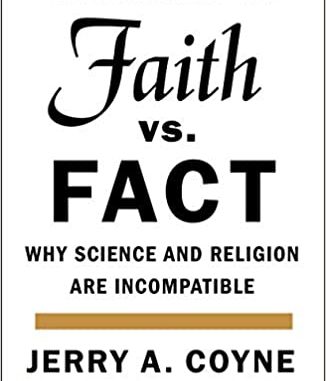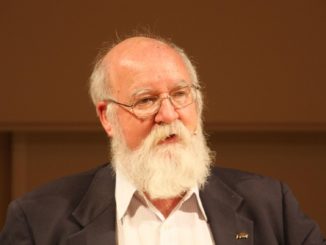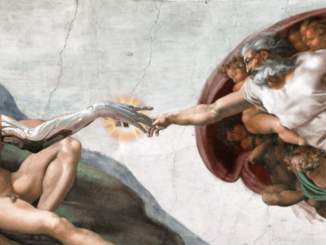
I have attempted to harvest from some of the greatest minds insight into the nature of God, human existence, and our ability to transcend what is commonly referred to as self-preservation – the "most powerful" human instinct. Further, I make the argument that debunks the myth that humans are mortal beings – simply living and ultimately dying.
If things were as simple as traditional biology tells us, then what accounts for a spouse or a parent willing to give his (her) life in exchange for his beloved? Perhaps love and the divine human spirit provide us with the innate spiritual supremacy to rise above our "greatest human instinct," and propel a person to outrival our "captive," namely, the primitive drive to survive. It goes without saying, we're back to where we began. The question that remains to be answered centers on whether human beings are eternal beings?
I did some research with respect to the probability of a person being alive at this very moment – living on the planet we call earth. We'll get back to this in a moment.
Bear in mind that our universe sprang into existence as "singularity" around 13.7 billion years ago.
Though I have been flirting with the possibility of eternal life (in some shape or form), and, something or Someone who was the grand designer of the cosmos, I haven't used the word "religion" – correct?
Comparing apples-to-apples, I will use the word "faith" when contrasting faith as a higher power vs. faith in the science underlying the Big Bang Theory.
We know that our universe was born almost 14 billion years ago, however, ask a scientist 'how the Big Bang occurred.' You will likely get a response that goes something like this, '14 billion years ago the universe burst into being from an unknown cosmic trigger. "Hmm – an unknown cosmic trigger … what's an unknown cosmic trigger? Beats me, but surely it takes some faith to believe in one!
Logic tells me that faith comes in two competing forms, faith in the form of a scientific theory and faith in something or someone, ie higher power. I tend to look for compelling evidence to support a given faith.
The supposition that some unknown cosmic trigger led to me sitting in front of my computer typing would require me to have faith in the existence of a cosmic trigger. So, what's a reasonable alternative to an unknown cosmic trigger? Probability and statistics, of course! I will illustrate my point without getting too deep into the mathematical discipline.
I noted above that I did some research with respect to the probability of a person being alive today – living on the planet we call earth. First and foremost, no matter what faith you embrace, you are a miracle – at least in the eyes of probability and statistics.
Throughout the violent and turbulent early moments of the Big Bang to the formation of earth 4.5 billion years ago, you "survived" the hundreds of millions of catastrophic events such as the meteor that hit earth killing 80% of all life on earth including the dinosaurs which occurred 66 million years ago.
From the Big Bang through the moment of your conception and birth, you are indeed a miracle given the statistical probability of you being here is somewhere around 1 in 400 trillion. I suggest that it's more likely for a person to win the lottery thousands of times consecutively than being alive.
Is statistical science fact or faith? Perhaps the probability (1 in 400 trillion) of you being alive, living on earth, is utter nonsense given that statistical analysis can be quite a daunting endeavor when it comes to controlling critical variables while analyzing and normalizing the data.
Frankly, it may be too difficult to arrive at a valid conclusion? I don't have a good answer, nonetheless, I think it more prudent to hitch a horse to a wagon that missing a wheel, ie unknown cosmic trigger.
Einstein went on to hold a deistic concept of God. He stood in awe at the beauty and complexity of the cosmos but could not bring himself to accept the idea of a God who meddles in human history.
Einstein's concept of beauty is that it resonates with the awe at the beauty and complexity of the cosmos. Certainly, something or Someone must have had a hand in the beautiful design of the cosmos.
Perhaps Einstein saw correctly that the beauty of the universe reflects the beauty of something or Someone beyond the universe. If God had remained silent, we could say no more than Einstein said – that "the vast darkness of the universe presents suggestions of a transcendent beauty."
Earnest Becker wrote "Man breaks through the bounds of mere cultural heroism; he destroys the character lie that had him perform as a hero in the everyday social scheme of things; and by doing so he opens himself up to infinity, to the possibility of cosmic heroism … He links his secret inner self, his authentic talent, his deepest feelings of uniqueness … to the very ground of creation. Out of the ruins of the broken cultural self there remains the mystery of the private, invisible, inner self which yearned for ultimate significance.
This invisible mystery at the heart of [the] creature now attains cosmic significance by affirming its connection with the invisible mystery at the heart of creation. "This," he concludes, "is the meaning of faith."
According to Becker, faith is the belief that despite one's "insignificance, weakness, death, one's existence has meaning in some ultimate sense because it exists within an eternal and infinite scheme of things brought about and maintained to design by some creative force.
Becker's ideas about cosmic design and a creative force is not as bold as Einstein's cosmic perspective that includes a non-traditional God, or "something or Someone" beyond the universe … I interpret this to mean a higher power.
I will end with a quote by Albert Einstein, "science without religion is lame, religion without science is blind."
Proudly WWW.PONIREVO.COM
Source by Christopher Doherty



